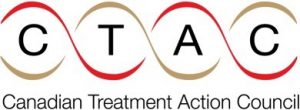
CTAC released the following statement on December 5, 2017
Re: Government Announcements about Limiting the Criminalization of HIV Non-Disclosure
On December 1, 2017, World Aids Day, Federal Justice Minister and Attorney General of Canada Jody Wilson-Raybould released a statement and a report, developed by her department, in collaboration with the Public Health Agency of Canada, which reaffirms that HIV is fundamentally a public health issue. Minister Wilson-Raybould said: “There has been significant progress in the treatment, management and prevention of HIV infection since the first World AIDS Day observed in 1988. I am pleased to release this report today on World AIDS Day. It clearly demonstrates that our criminal justice system must adapt to better reflect this progress as well as current scientific evidence on HIV-AIDS. Our Government is taking action to help reduce the stigmatization of persons living with HIV, including undertaking an evidencebased approach to addressing HIV non-disclosure in the criminal justice system.”
The joint statement issued by Ontario’s Attorney General Yasir Naqvi and Health Minister Eric Hoskins carried similar messaging, but went a bit further by adding that “in light of the compelling scientific consensus for cases where an individual has a suppressed viral load for six months, Ontario’s Crown Prosecutors will no longer be proceeding with criminal prosecutions.”
While these announcements are a step in the right direction, we at CTAC, as a national organization whose role is to advocate for the rights of all people living with HIV, believe this piecemeal approach to the criminalization of HIV non-disclosure will widen the divide among people who are already marginalized through inequitable policies.
In order for these announcements to be meaningful, CTAC calls for additional government action on the following critical issues:
- The availability of HIV self-testing kits. Self-testing could enhance access to HIV testing for many Canadians and is a critical step towards prevention and treatment. This technology is widely used in other developed countries such as the United States, United Kingdom, France and Australia.
- Universal pharmacare. Canada’s patchwork of 18 publicly funded drug programs results in inequitable access to HIV treatments across Canada. CTAC also calls for reforms to drug copayments that force people to make choices between treatment and other basic needs such as shelter and food.
- Improved efficiencies in drug regulatory approvals to ensure that new and innovative treatments are available to all Canadians in a timely way.
- Access to HIV pre-exposure prophylaxis (PrEP) across all jurisdictions. PrEP is a safe and cost effective way to reduce HIV transmission. It has been approved by Health Canada and is only available to people in Quebec and Ontario, as well as the beneficiaries of some private drug plans. PrEP needs to be available to all Canadians as part of a coordinated plan to make HIV transmissions rare in Canada. With the recent arrival of new generic forms of PrEP, costs are decreasing and there is an opportunity for governments to act on this innovative form of prevention.
- Additional funding to AIDS Service Organizations to provide wrap-around services that support mental health, social determinants of health such as food, housing and employment and adherence to medication.
- A reinstatement of $90 million dollars annually into the Federal Initiative to support prevention, testing, treatment, care and support. This is the only way that Canada will reach the UNAIDS 90-90-90 targets.
The fight is not over yet. Let us walk together in solidarity to ensure equitable access to HIV testing, treatment, care and support for all people living in Canada.
Sincerely,
Shelina Karmali Executive Director, and Terry Pigeon, Chair, Board of Directors
Learn More:
Criminal Justice System’s Response to Non-Disclosure of HIV (December 1, 2017)
